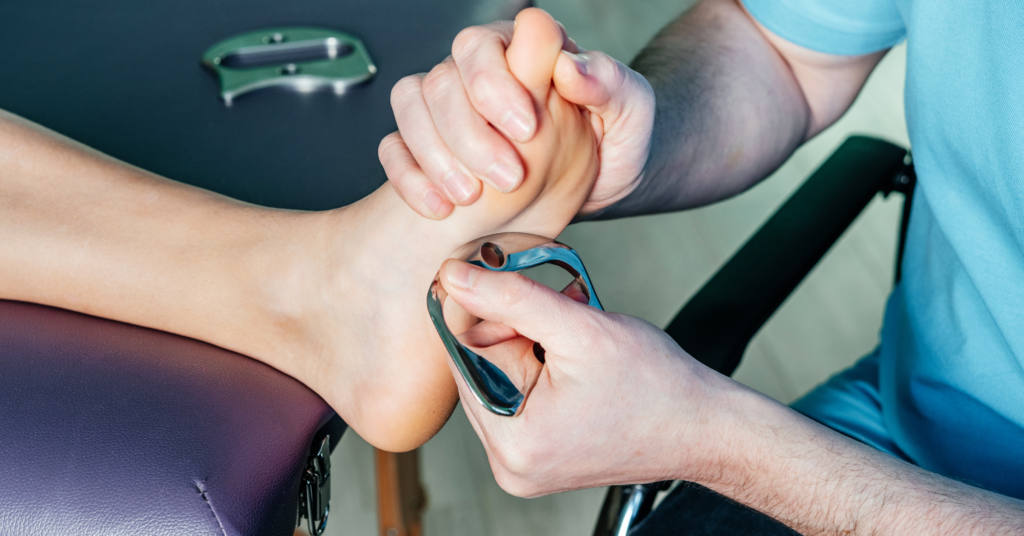5 Methods to Manage Plantar Fasciitis

Plantar fasciitis, a common foot condition, can cause significant discomfort and impact daily activities. It occurs when the plantar fascia, a thick band of tissue connecting the heel bone to the toes, becomes inflamed or irritated. Managing plantar fasciitis involves a multifaceted approach to reduce pain, inflammation, and discomfort while promoting healing and preventing recurrence. Here are five effective methods to manage plantar fasciitis.
Rest and Ice Therapy
Resting the affected foot is crucial in allowing the inflamed plantar fascia to heal. Integrating chiropractic care into your treatment plan for plantar fasciitis can offer holistic benefits, addressing not only the symptoms but also the structural imbalances that may contribute to the condition. Avoiding activities that exacerbate symptoms, especially those involving prolonged standing or walking, can provide relief.
Additionally, applying ice packs to the heel and bottom of the foot can help reduce inflammation and alleviate pain. Considering the interconnectedness of the body’s musculoskeletal system, addressing plantar fasciitis effectively often requires a holistic approach that can also include treatments for related issues like knee pain, for which a chiropractor can provide significant help. Ice therapy constricts blood vessels, reducing blood flow to the area and numbing the pain. Ice can be applied for 15-20 minutes several times a day, particularly after physical activity or when experiencing discomfort. While managing plantar fasciitis through home methods is essential, seeing a chiropractor can offer additional benefits, including personalized advice and treatments that further alleviate pain and improve foot function.
Stretching Exercises

Regular stretching exercises targeting the calf muscles, Achilles tendon, and plantar fascia can help improve flexibility and reduce tension in the affected area. These stretches include calf stretches, toe stretches, and plantar fascia stretches.
tretching should be performed gently and regularly to prevent further strain on the plantar fascia. Incorporating stretching exercises into a daily routine can alleviate symptoms and prevent the recurrence of plantar fasciitis.
To improve flexibility and reduce tension in the plantar fascia, our clinic offers personalized stretching sessions tailored to your needs. These sessions focus on the calf muscles, Achilles tendon, and plantar fascia, vital for managing plantar fasciitis.
Orthotic Devices
Orthotic devices, such as shoe inserts or custom orthotics, play a significant role in managing plantar fasciitis by providing support and cushioning to the foot. These devices help redistribute pressure and reduce strain on the plantar fascia, particularly in individuals with biomechanical abnormalities such as overpronation or high arches. Orthotic inserts can be worn in supportive shoes to improve foot alignment and reduce discomfort associated with plantar fasciitis. For those experiencing stubborn or chronic plantar fasciitis, Intramuscular Stimulation/Dry Needling by a qualified physiotherapist could provide relief by targeting deeper layers of muscle and fascia not easily reached with standard treatments.
Footwear Modification
Wearing supportive and properly fitting shoes with good arch support and cushioning is essential in managing plantar fasciitis. Avoiding high heels and shoes with inadequate support can help reduce strain on the plantar fascia.
Additionally, using night splints while sleeping can maintain a dorsiflexed position, meaning the fascia is stretched out to help it from tensing up while you sleep. Stretching the plantar fascia and Achilles tendon helps to alleviate morning pain and stiffness. Proper footwear and night splints can significantly improve symptoms and prevent the recurrence of plantar fasciitis. For advice on supportive and properly fitting shoes, schedule a consultation with us. We can guide you towards the best footwear modifications to manage your plantar fasciitis effectively, including the use of night splints to prevent morning pain and stiffness.
Physical Therapy

Physical therapy plays a crucial role in managing plantar fasciitis by addressing underlying biomechanical issues, strengthening muscles, and improving flexibility. Physical therapists may prescribe stretching exercises, strengthening exercises, manual therapy techniques, and modalities such as ultrasound or electrical stimulation to alleviate symptoms and promote healing. Physical therapy is highly effective when combined with other interventions and tailored to the individual’s needs. Managing plantar fasciitis effectively is just one aspect of overall musculoskeletal health; for those also suffering from back pain, exploring effective back pain relief options in Cloverdale, BC can provide a more comprehensive approach to wellness. Our approach to managing plantar fasciitis includes a comprehensive physical therapy program. By addressing underlying biomechanical issues and strengthening muscles, we tailor our physical therapy to each individual’s needs, utilizing techniques that may include manual therapy and modalities such as ultrasound.
Conclusion

Effectively managing plantar fasciitis requires a comprehensive approach that addresses the underlying causes, reduces symptoms, and promotes healing. Rest, ice therapy, stretching exercises, orthotic devices, footwear modification, and physical therapy are all valuable methods for alleviating pain and discomfort associated with this condition.
However, it’s crucial to recognize the importance of seeking professional guidance and assistance. In Cloverdale, our chiropractic clinic is equipped to provide you with the professional guidance and assistance needed to alleviate your pain and discomfort. Don’t let plantar fasciitis disrupt your daily activities—reach out to us for a comprehensive treatment plan tailored to your specific needs.
If you’re struggling with the discomfort of plantar fasciitis and seeking more personalized physiotherapy in Cloverdale to manage your condition, our team at Clover Hills is here to support you. Our expert physiotherapists specialize in a range of treatments tailored to alleviate the pain of plantar fasciitis, improve your foot health, and enhance your overall well-being. Don’t let plantar fasciitis hold you back from enjoying your daily activities. Contact us today to schedule your consultation and take the first step towards pain-free living.
